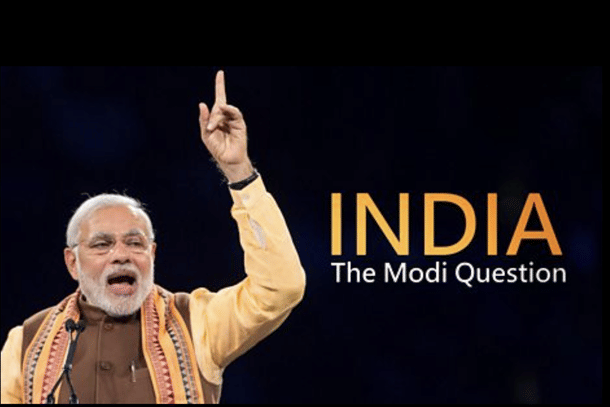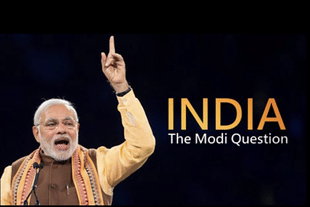News Brief
Advantage Opposition? SC Issues Notice To Centre On PILs Regarding BBC Documentary On 2002 Gujarat Riots
Swarajya Staff
Feb 03, 2023, 01:26 PM | Updated 01:27 PM IST
Save & read from anywhere!
Bookmark stories for easy access on any device or the Swarajya app.


The Supreme Court today, 3 February, sought a response from the central government on pleas challenging its decision to block a BBC documentary on the 2002 Gujarat riots.
A bench of justices Sanjiv Khanna and Justice M M Sundresh issued notices to the government and others on the pleas filed by veteran journalist N Ram, Trinamool Congress MP Mahua Moitra and activist lawyer Prashant Bhushan.
It also issued a notice on the plea filed by lawyer M L Sharma.
The apex court also directed the Centre to produce original records relating to take down order.
'We are issuing notices. Counter affidavit be filed within three weeks. Rejoinder within two weeks after that,' the bench said.
The matter is listed for next hearing in April.
Union Law Minister Kiren Rijiju had on Monday (27 January) slammed the petitioners challenging Centre's alleged decision to block the BBC documentary on PM Modi.
The Law Minister said that the petitioners were "wasting the precious time" of the Supreme Court, even as thousand of common citizens are "seeking dates" from the apex Court for justice.
The 'documentary' in question is actually a documentary series called India: The Modi Question.
The first episode of the series can be described as lazy, malicious, and blindly partisan.
Here's what the BBC says in its description for this episode:
"Narendra Modi is the leader of the world’s largest democracy, a man who has been elected twice as India’s prime minister and is widely seen as the most powerful politician of his generation. Seen by the west as an important bulwark against Chinese domination of Asia, he has been courted as a key ally by both the US and the UK.
Yet Narendra Modi’s premiership has been dogged by persistent allegations about the attitude of his government towards India’s Muslim population. This series investigates the truth behind these allegations and examines Modi’s backstory to explore other questions about his politics when it comes to India’s largest religious minority.
This episode tracks Narendra Modi’s first steps into politics, including his association with the right-wing Hindu organisation Rashtriya Swayamsevak Sangh, his rise through the ranks of the Bharatiya Janata Party, and his appointment as chief minister of the state of Gujarat, where his response to a series of riots in 2002 remains a source of controversy."
As multiple threads on social media have already pointed out, this episode either ignores or casually dismisses what the Indian judiciary itself said on not only the then CM Modi's response to the riots but also on the character and conduct of those charging him with the blame for them (Setalvad, Sreekumar etc).
The episode, through its running time of about an hour, regurgitates the same charges and motifs which have been disproven and discredited multiple times in the last two decades.
Some of the dubious and false claims in this episode include:
Indian Muslims are subjected to hate speeches in a one-sided attack.
CAA was discriminatory to Muslims, and Muslims protested peacefully against it.
RSS propagates racial superiority of Hindus.
These and other claims have been exposed and rebutted here.
Also read: 'India: The Modi Question' S01 E01 is lazy, malicious and maybe even racist, all at the same time
With inputs from PTI.





